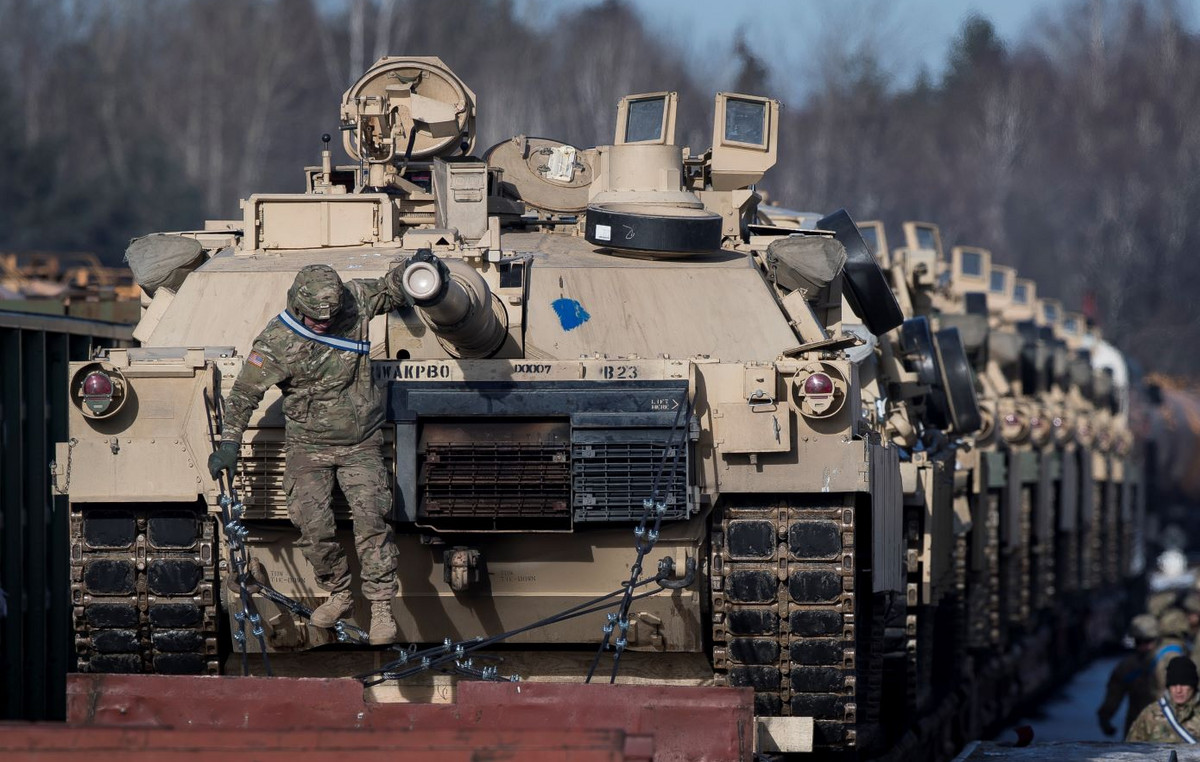The head of the World Health Organization (WHO) said this Friday (27) that he was not sure whether he would survive an Israeli airstrike on Yemen’s main airport.
Speaking after the action at Sanaa International Airport on Thursday, WHO Director-General Tedros Adhanom Ghebreyesus said the explosions that rocked the building were so deafening that his ears were still feeling the booms.
Tedros said it quickly became evident that the airport was under attack and said people “ran everywhere” after approximately four explosions, one of them “alarming” near where he was sitting in the departure lounge.
“I wasn’t sure if I could survive because I was so close, just a few meters from where we were,” he told Reuters. “A small deviation could have resulted in a direct shot,” he added.
Tedros said he and his colleagues were trapped at the airport for the hour following the attack. He reports that he heard what sounded like drones flying over the airport, fueling concerns that they might open fire again. Among the debris, he and his colleagues saw fragments of missiles, he said.
“There was no shelter. Nothing. So you’re just exposed, waiting for something to happen,” he said.
The Israeli strikes in Yemen came after the Houthis – a Yemeni group backed by Iran – repeatedly fired drones and missiles towards Israel, in what they describe as acts of solidarity with Palestinians in Gaza.
After the attack, Israeli Prime Minister Benjamin Netanyahu said Israel was “just getting started” with the Houthis.
The Houthi-controlled Saba News Agency said three people died in the airport attacks and three were killed in Hodeidah, with another 40 injured.
Speaking by phone from Jordan, Tedros said he had received no warning that Israel might be about to attack the airport. The WHO chief is in Jordan accompanying a UN colleague who was injured in the attack and is in hospital.
The injured man, who worked for the UN Humanitarian Air Service, is “fine” and in a stable condition, he said.
Tedros traveled to Yemen over Christmas to try to negotiate the release of UN staff and other detainees. He acknowledged that he and his colleagues knew the trip was risky given the high tension between Israel and the Houthis.
But this was the window of opportunity to work for the release of UN personnel, Tedros said.

He said negotiations with Yemeni authorities had been successful and that he saw a chance for the 16 UN staff, as well as diplomatic mission staff and NGO workers, to be released.
He declined to name those responsible for the attack, but said his itinerary had been shared publicly and expressed surprise that civilian infrastructure had been targeted.
“So a civilian airport must be protected, whether I am in it or not,” he said, before noting that there was “nothing special” about what he had faced in Yemen. “One of my colleagues said we narrowly escaped death. I’m just a human being. So I feel for those who are facing the same thing every day. But at least it allowed me to feel the way they feel”, he reflected.
“I’m worried about our world, where it’s going,” Tedros added, urging world leaders to work together to end global conflicts. “I have never… as far as I remember, seen the world actually be in such a dangerous state,” he concluded.
Understand the conflicts involving Israel
At the end of November, a ceasefire between Israel and Hezbollah was approved. This comes after months of bombings by the Israeli Army in Lebanon.
The offensive caused destruction and forced more than a million people to leave their homes to escape the war. Furthermore, it left dozens of people dead in Lebanese territory.
Like Hamas, Hezbollah and Islamic Jihad are radical groups financed by Iran, and therefore enemies of Israel.
The expectation is that the agreement will serve as the basis for a more lasting cessation of hostilities.
At the same time, the war continues in the Gaza Strip, where the Israeli military is fighting Hamas and searching for hostages who were kidnapped more than a year ago during the radical group’s attack on Israeli territory on October 7, 2023. At the time, more than 1,200 people were killed and 250 kidnapped.
Since then, more than 43,000 Palestinians have died in Gaza during Israel’s offensive, which also destroyed virtually every building in the Palestinian territory.
On a third front of conflict, Israel and Iran exchanged attacks, which despite raising tension, did not evolve into an all-out war. Furthermore, the Israeli Army has been bombing targets belonging to militias allied with Iran in Syria and Yemen. and in Iraq.
This content was originally published in “I didn’t know if I would survive”, says WHO chief about the Israeli attack in Yemen on the CNN Brasil website.
Source: CNN Brasil
Bruce Belcher is a seasoned author with over 5 years of experience in world news. He writes for online news websites and provides in-depth analysis on the world stock market. Bruce is known for his insightful perspectives and commitment to keeping the public informed.







